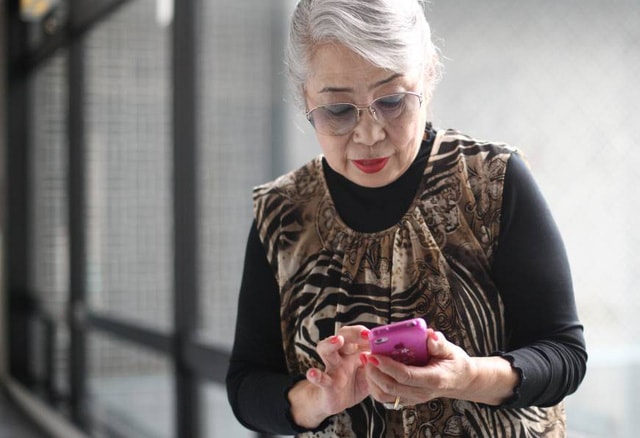Why don't rich people in Japan like to own villas or supercars?
In the land of the rising sun, your neighbor may be a millionaire but you have no idea because their house is no different from yours. Rich people do not like to build villas or buy supercars, so what do they spend their money on?
The Japanese do not like to be the center of attention, so they do not usually flaunt their wealth. It is not surprising if you see a millionaire's house that looks exactly like any other house.
So how to identify rich people in Japan? According to Atsushi Miura, author of the book “The New Rich”, a person is classified as rich in Japan if he has an average annual income of over 30 million yen (over 6 billion VND), and has a minimum total asset of 100 million yen (over 20 billion VND). Currently, there are about 1.3 million Japanese people (accounting for 1% of the population) who meet this criteria.
Another way to identify it is that rich people in Japan tend to live off the income from their assets without touching them.
 |
| Rich Japanese people do not like to own villas or supercars. They spend money mainly on art and travel. |
In his research, Miura pointed out that rich people in Japan tend to avoid flaunting their wealth. They do not build villas or castles, always keeping in mind the idea of “not throwing money out the window carelessly”.
However, the Japanese elite will spend money on things they like, especially things that cannot be held. They will prefer to spend money on patronizing the arts and going to concerts rather than on luxury cars or jewelry. They travel frequently, especially by ship.
Miura also found that wealthy Japanese are increasingly looking for domestic goods. They buy domestic products and travel domestically. They prefer a bottle of fine Japanese wine to foreign wine, and Japanese art to Western art.
This action is not simply a hobby, but also shows their civic responsibility to the country. Rich Japanese people are aware of their position in society, and know that Japan needs their money.
However, the Japanese elite try to avoid paying taxes on their assets by keeping them overseas. And to manage this situation, since 2015 the Japanese government has issued regulations requiring those who own assets overseas worth more than 50 million yen (more than 10 billion VND) to declare.
Another characteristic of the new generation of rich people in Japan is that they are conscious of their wealth, while the rich people of the past did not pay attention to their wealth. The main reason is that the rich people today got rich through their own efforts and talents.
Even those who inherit wealth from their fathers and grandfathers still find jobs and work all their lives. There is no such thing as “rich people with nothing to do” in Japan.
 |
| Despite inheriting huge fortunes from their parents, Japanese children still go to school, get jobs and work all their lives. |
Don't "sit back and enjoy the benefits"
In fact, the children inherit from their families and what makes them rich is not just the inheritance but the tools to make money. Thanks to the inheritance, they get the best education and understand how money works, which is difficult for ordinary people to access.
This view is more fully expressed in the Tokyo TV financial program “Nikkei Plus 10”. In the program, Mr. Junji Hatoriya, an official of Nomura Research Institute, revealed how the rich maintain their prosperity while the middle class still struggles to catch up. Mr. Hatoriya pointed out three main factors that will help high-income people become the rich class of the future.
The first factor is rich kids. Nomura’s research shows that rich kids don’t necessarily inherit or expect to inherit their parents’ wealth to become rich. Instead, they learn how to invest from their parents. Only 8% of children from ordinary families have experience in investing, while 24% of children from wealthy families have this experience, and 52% own their own stocks.
The second factor is “couple power,” which Nomura defines as couples who both work to bring home money, with a combined income of at least 10 million yen a year. 44% of these couples have investment experience, compared to 15% of other couples.
It is easy to see that these power couples all hire financial consultants to help them plan their investments and manage their money effectively because they often do not have enough time to do this. They spend freely but mainly on things that give them more free time, such as house cleaning services.
 |
| Even though they are retired, the elderly in Japan are still very tech-savvy. They spend time online to update news from around the world and learn more about financial investments. |
The final factor mentioned by Nomura is the “digital elders”. These are retired seniors who are still tech-savvy and spend a lot of time online. They understand how the world works and improve their investment knowledge through the internet.
They don't buy and sell stocks over the internet. They still do it the old-fashioned way, through brokerage firms. However, with their knowledge of financial trends, they can talk to experts and make sound investment decisions.
Nomura estimates that there are now about 8.8 million digital seniors, with total assets of around 26 million yen. While other seniors have total assets of around 14 million yen. This figure proves that it is time to pay to learn how to use a computer.
According to Dan Tri
| RELATED NEWS |
|---|
